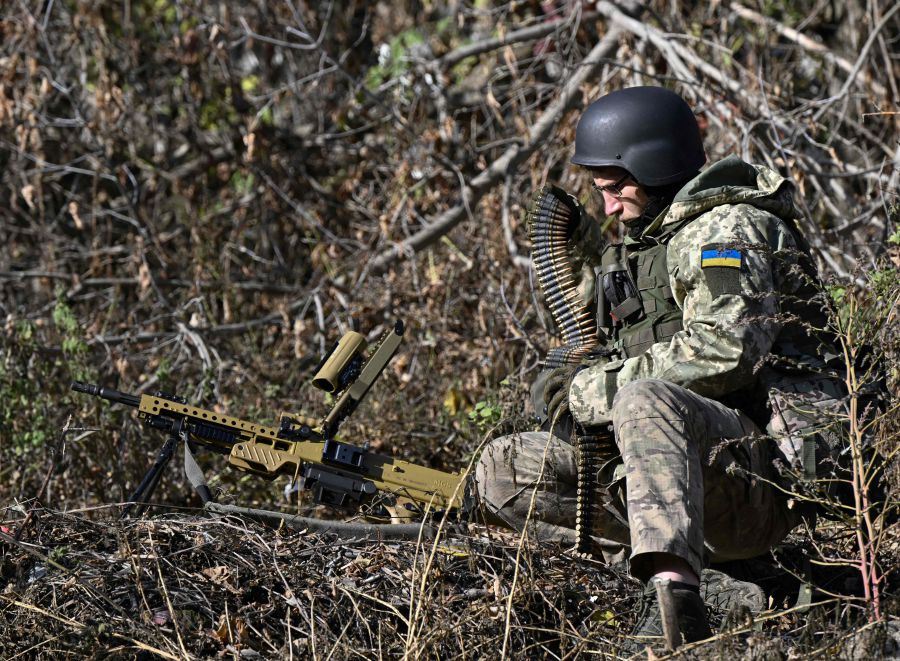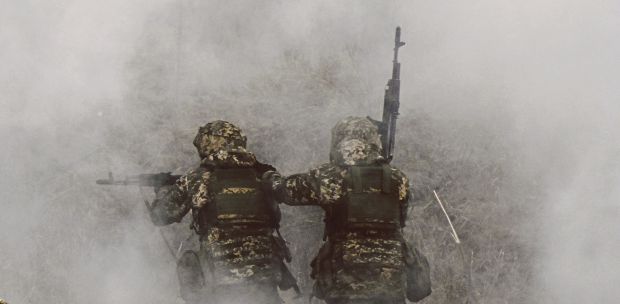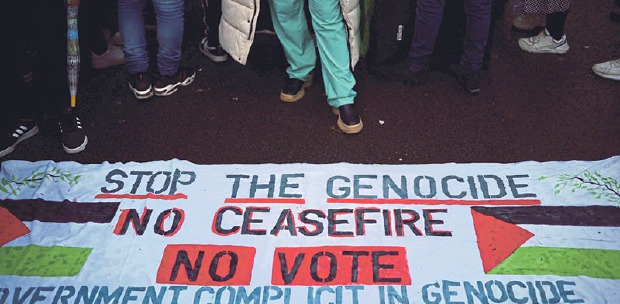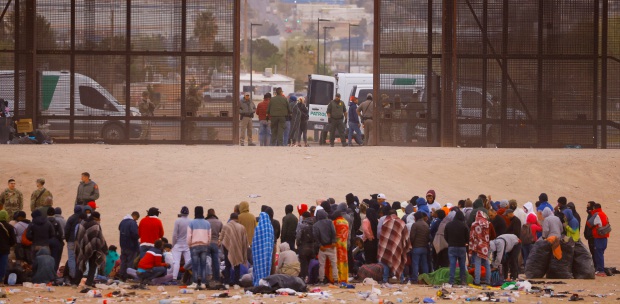FROM fake street art to doctored media reports demonising President Volodymyr Zelensky, a torrent of online disinformation seeks to erode Western support that is crucial for Ukraine's war effort against Russia.
The falsehoods, experts say, are aimed at provoking anti-Ukraine sentiment in Western countries while lending credence to the notion that war-weary European and American allies are turning against Zelensky.
The wave of disinformation comes as Kyiv is scrambling to retain Western support, while attention shifts to the war between Israel and Hamas, ahead of what is expected to be another winter bombing campaign by Russia.
"The (disinformation) campaigns take place in multiple countries and languages, and their intensification suggests concerted efforts," Roman Osadchuk, from the Atlantic Council's Digital Forensic Research Lab (DFRLab), said.
"The main goal of Russia here is to put a wedge in Western societies, polarising them and portraying the help for Ukraine as 'problematic'.
"These efforts are aimed at the political elites and the general population, some of whom might not closely follow the war, making them more vulnerable" to the false narratives.
AFP's factcheckers have exposed a series of doctored images of street art mocking Zelensky, who has faced an avalanche of disinformation since the start of the Russian invasion in February 2022.
That includes fake photos, shared across social media platforms, of graffiti in cities such as Warsaw, Berlin and Paris depicting Zelensky devouring money from his Western allies. No such graffiti was found.
AFP factcheckers have also uncovered fabricated German and French media reports about graffiti depicting Zelensky engaging in cannibalism.
When Zelensky visited the United States last month, a doctored online video appeared to show a New York city billboard with the words "glory to urine" alongside an image of the Ukrainian leader.
The manipulated clip was watermarked with the logo for Fox News Digital, but a network spokesman told AFP that it had not posted any such footage.
It remains unclear who is behind the false claims but they fit a broader pattern of anti-Ukraine disinformation by Russia, which for decades has engaged in information warfare focused on fuelling anti-Western sentiments, researchers say.
"There has been a visible growth of Russian propaganda in Europe" compared with the first few months of 2022, Ruslan Trad, a resident fellow for security research at the DFRLab, said.
"The Kremlin is capitalising on war fatigue and apathy, as well as Euroscepticism and fears of Western and Central European societies."
Slovakia's new populist Prime Minister Robert Fico on Thursday said he had "informed" the European Union's executive of his decision to stop military aid to Ukraine. This raised concerns about cracks in Western support for Kyiv.
Soon after last month's general election, which Fico won on pledges to end assistance to Ukraine, Slovakia accused Russia of interfering in the vote by disseminating falsehoods.
Even in the United States, Ukraine's biggest donor of security aid, there are concerns that opposition from hardline Republican lawmakers has put future assistance for Ukraine in doubt.
President Joe Biden is pushing Congress to approve a massive US$106 billion security bill, which includes US$61 billion in military aid for Ukraine.
On Thursday, Washington announced a new US$150 million military assistance package for Ukraine that includes artillery and small-arms ammunition as well as anti-tank weapons.
Zelensky thanked the US for the assistance, saying "strengthening air defence is critical to protect Ukrainian cities and infrastructure" as winter approaches.
Ukraine is bracing itself for a renewed Russian bombing campaign on its energy infrastructure, which last year plunged millions of civilians into extreme hardship.
The European Union has also vowed steadfast support.
This month, the European Parliament endorsed a proposal to provide an extra 50 billion euros for Ukraine's recovery.
But despite these robust pledges, US officials cited by local media have warned that Russian President Vladimir Putin seeks to end American and European support for Ukraine by using his spy agencies to push propaganda and conspiracy theories.
The writers are from Agence France-Presse





